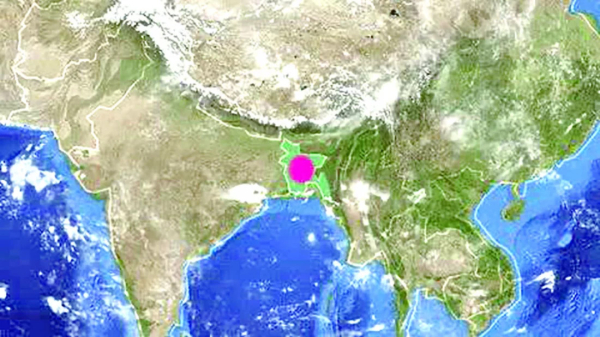
For low-income and poor people in Bangladesh today, entering the market and buying safe, nutritious, and affordable food has become a daunting and fearful task.
Although the global economy has not officially entered a recession, post Covid conflicts, the climate crisis, and Donald Trump’s recent tariff policies have created volatility in investment markets.
In the wake of the 2024 anti-fascism movement, both the International Monetary Fund (IMF) and the World Bank have pointed out that Bangladesh's economic growth has fallen short of expectations, though they remain optimistic about future prospects.
Under the leadership of Chief Adviser Dr Muhammad Yunus, several reform commissions have been established across critical sectors. However, agriculture has remained an unexpected exception, with no significant attention or reform efforts directed towards it.
The fact is that almost half of Bangladesh’s population is directly or indirectly involved in this sector. As a result, the aspirations and needs of young farmers, emerging entrepreneurs, private investors, and rural communities have largely remained unaddressed.
Despite a bumper potato harvest this year, many farmers fed their crops to cattle due to price drop. Onion growers face the same fate -- higher yields, but market syndicates control it.
As production costs rise, consumers pay double, sometimes even higher, yet no effective solution has emerged to fix this black hole.
By 2030, Bangladesh’s population will be near 190 million -- and 200 million by 2050 -- while arable land keeps shrinking due to urban growth, industry, and disasters.
Without boosting food production, ensuring affordable, nutritious food for all will be tough. Sticking to traditional farming will only serve the elite, leaving the poor nutritionally deprived.
On top of that, research shows rice demand in Bangladesh will hit 37.6 million metric tons by 2030 and 41.3 million by 2050, alongside rising needs for wheat, potatoes, vegetables, and proteins.
Rice is both a staple and a politically-sensitive crop in Bangladesh. But climate shocks -- like flash floods, droughts, and rising soil salinity -- are hitting yields hard, while fewer young people are choosing farming as a livelihood.
In this reality, traditional farming won’t be enough. We need science-based policies and technology-driven research to ensure food security and keep agriculture sustainable.
Without urgent reform and localized modernization, agriculture risks becoming a drag on the national economy.
This would harm poor farmers with limited resources, undermine rural livelihoods, and trigger a deeper crisis in food and nutrition security in the long run.
As Bangladesh pushes for agricultural progress, India has surged ahead by introducing the world’s first genome-edited rice varieties -- “Kamala” and “Pusa DST Rice 1” -- which offer 30% higher yields than traditional types.
These climate-resilient, high-yield crops promise better farmer incomes and lower greenhouse gas emissions, marking a significant leap in India’s agricultural research.
Although Bangladesh has approved a standard operating procedure for genome editing, progress remains stalled due to the absence of a national policy and research efforts and investments.
Uncertainty and a culture of hesitation around agricultural biotechnology continues to keep promising innovations from reaching farmers.
As India boldly edited the future of rice, Bangladesh is still stuck debating the basics. The choice is ours: Embrace science or continue spinning in circles.
Without national recognition of targeted agricultural innovations, Bangladesh faces a looming food security crisis. It’s time to embrace genome editing and modern agricultural research as safe, sustainable solutions, with a strong focus on farmers’ needs.
To foster innovation, we must secure increased government and private investment, enhance coordination among research institutions and bureaucrats, and implement a science-driven framework -- not just on paper, but in every action and decision we make.
Most importantly, our leaders must understand that agriculture is not just about food -- it is the cornerstone of our future economy.
India’s progress today could be replicated by Indonesia tomorrow, and soon, other countries like Iran will follow suit. This is not just an inspiration, but a stark warning.
The time to decide is now -- will we lead with innovation, or will we continue to rely on importing technology for the next 50 years?
We must remember that slavery spreads not only through physical power and wealth but also through science and innovation. Let’s use science for the betterment of humanity.
Md Arif Hossain is Executive Director of Farming Future Bangladesh, Fellow at Cornell University and a Global Fellow at Michigan State University. Email: [email protected].


